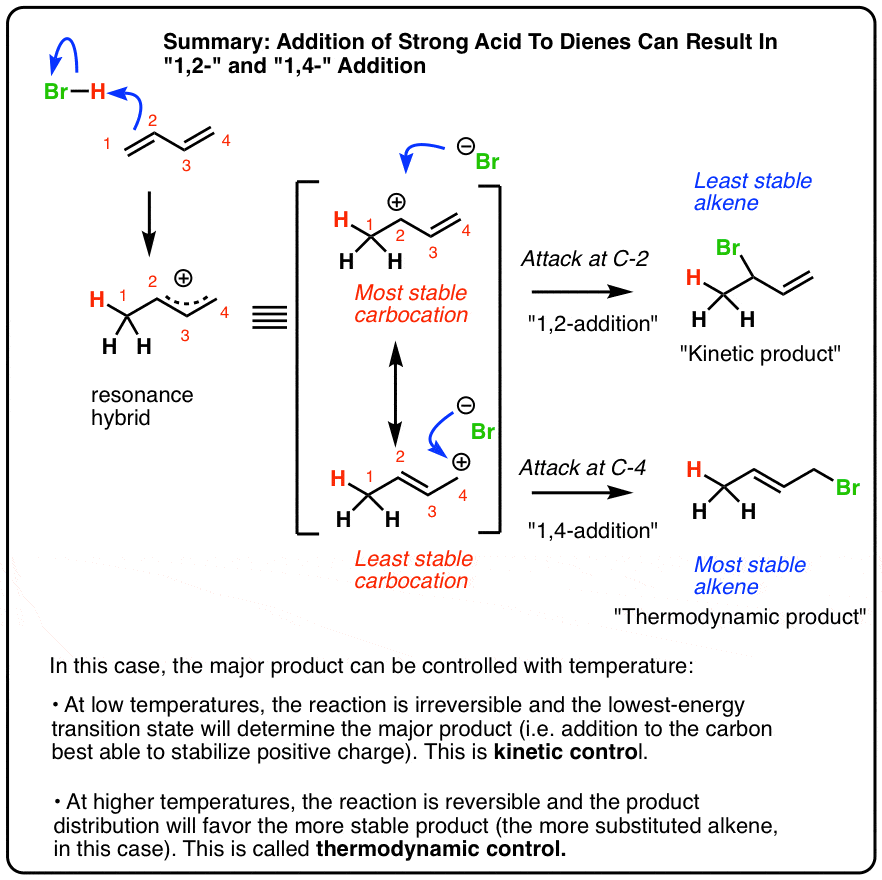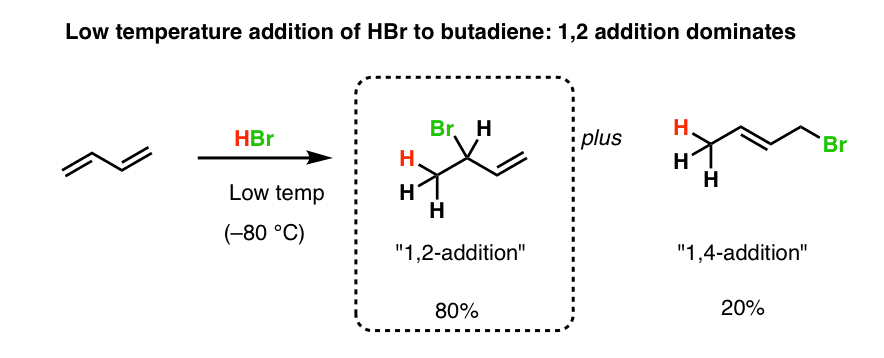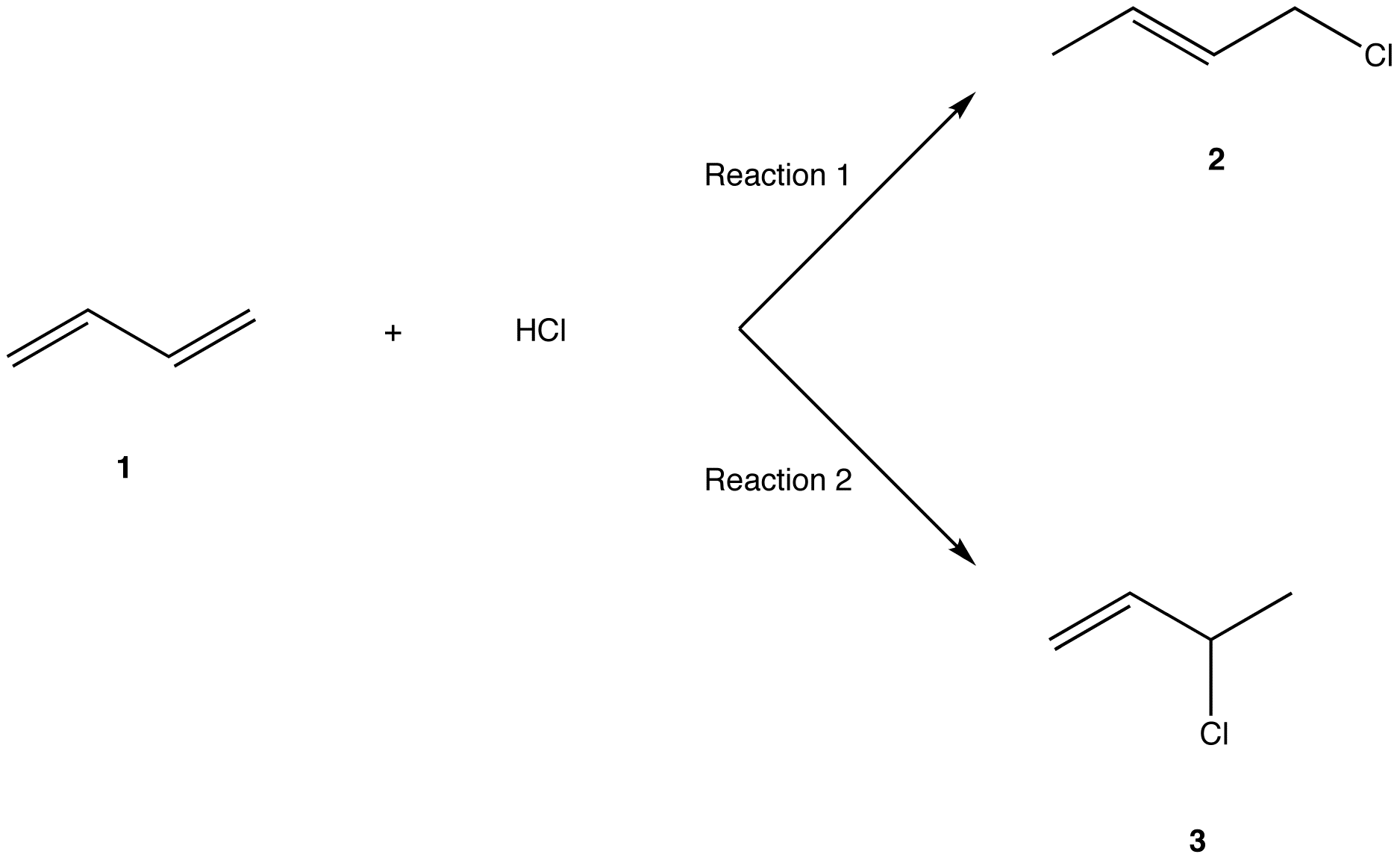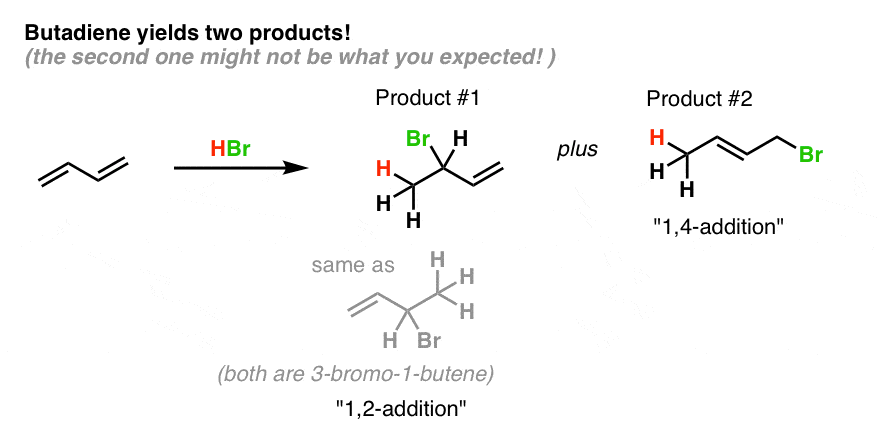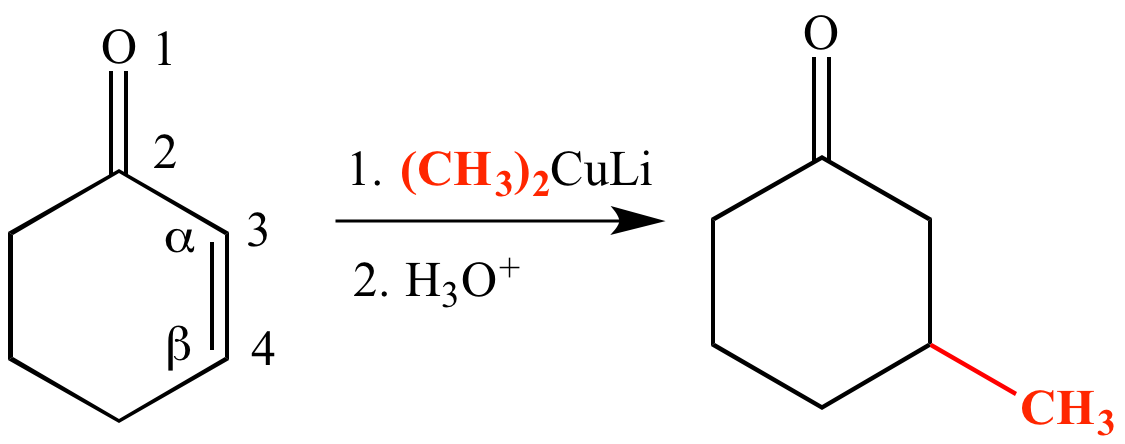1 2 1 4 Addition
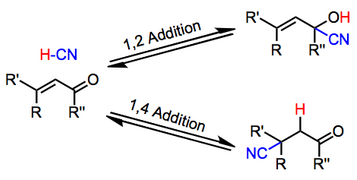
One of the confusing parts of diene chemistry is the fact that they can product multiple products specifically 1 2 addition products and 1 4 addition products.
1 2 1 4 addition. Here s a literature example. And indeed at low temperature 1 2 addition to butadiene is favoured. Two electrophilic addition reactions could occur between 1 3 butadiene 1 and hydrogen chloride. Dabei können sie jedoch wenn sie konjugiert sind eine resonanz ausbilden so dass sich die doppelbindungen im endprodukt verschieben.
Attack at c 4 provides the 1 4 product. 1 4 addition is an electrophilic addition reaction of conjugate dienes. See equivalent fractions example. Bonding at the terminal carbon atoms of a conjugated diene with a shift of the remaining double bond to the 2 3 location these numbers refer to the four carbons of the conjugated diene and are not.
When a dihalogen such as br 2 is added to a diene such as butadiene a bromonium ion intermediate will form on one of the double bonds. Simple alkene compounds do not show 1 2 reactivity due to lack of polarity unless the alkene is activated with special substituents with α β unsaturated carbonyl compounds such as cyclohexenone it can be deduced from. Bonding to the adjacent carbons of a double bond the unexpected product comes from 1 4 addition i e. 1 2 and 1 4 products in addition of br 2 to butadiene.
Whether more 1 2 addition or 1 4 addition product is created depends largely on the temperature at which the reaction is run. We re so used to seeing markovnikov addition in alkenes where addition occurs to the most stable carbocation that it seems intuitive that the 1 2 addition product would be dominant. 1 3 1 6. 1 4 1 4 2 4 1 2.
The c 2 symmetric norbornadiene derivative 1r 4r 2 5 dibenzylbicyclo 2 2 1 hepta 2 5 diene was used as ligand for the rhodium catalyzed asymmetric 1 4 addition of organoboron and tin reagents to α β unsaturated ketones which gave high yields of the addition products with up to 99 enantioselectivity. Attack at c 2 provides the 1 2 product. The bottom numbers are different. And do you see how 2 4 is simpler as 1 2.
For example the addition of hydrogen bromide to 1 3 butadiene at temperatures below zero leads mainly to the 1 2 addition product while addition reactions run at temperatures above 50 c with these chemicals produces mainly the 1 4 addition product. Hence reaction 1 is called 1 4 addition and its product 2 1 4 adduct. 2 4 1 2. The 1 2 addition product or the 1 4 addition product.
Nucleophilic conjugate addition is a type of organic reaction ordinary nucleophilic additions or 1 2 nucleophilic additions deal mostly with additions to carbonyl compounds. Attack of the nucleophile can occur at two different positions. In reaction 1 the net reaction is addition of a hydrogen atom to c 1 and a chlorine atom to c 4 in 1. See how the slices are different sizes.
Dienes undergo two major reactions which include diels alder reactions and electrophilic addition usually of hcl or hbr but other groups are possible. In picture form it looks like this. Elektrophiler angriff 1 2 addition 1 4 addition diene können genauso wie alkene an der doppelbindung angegriffen werden.
